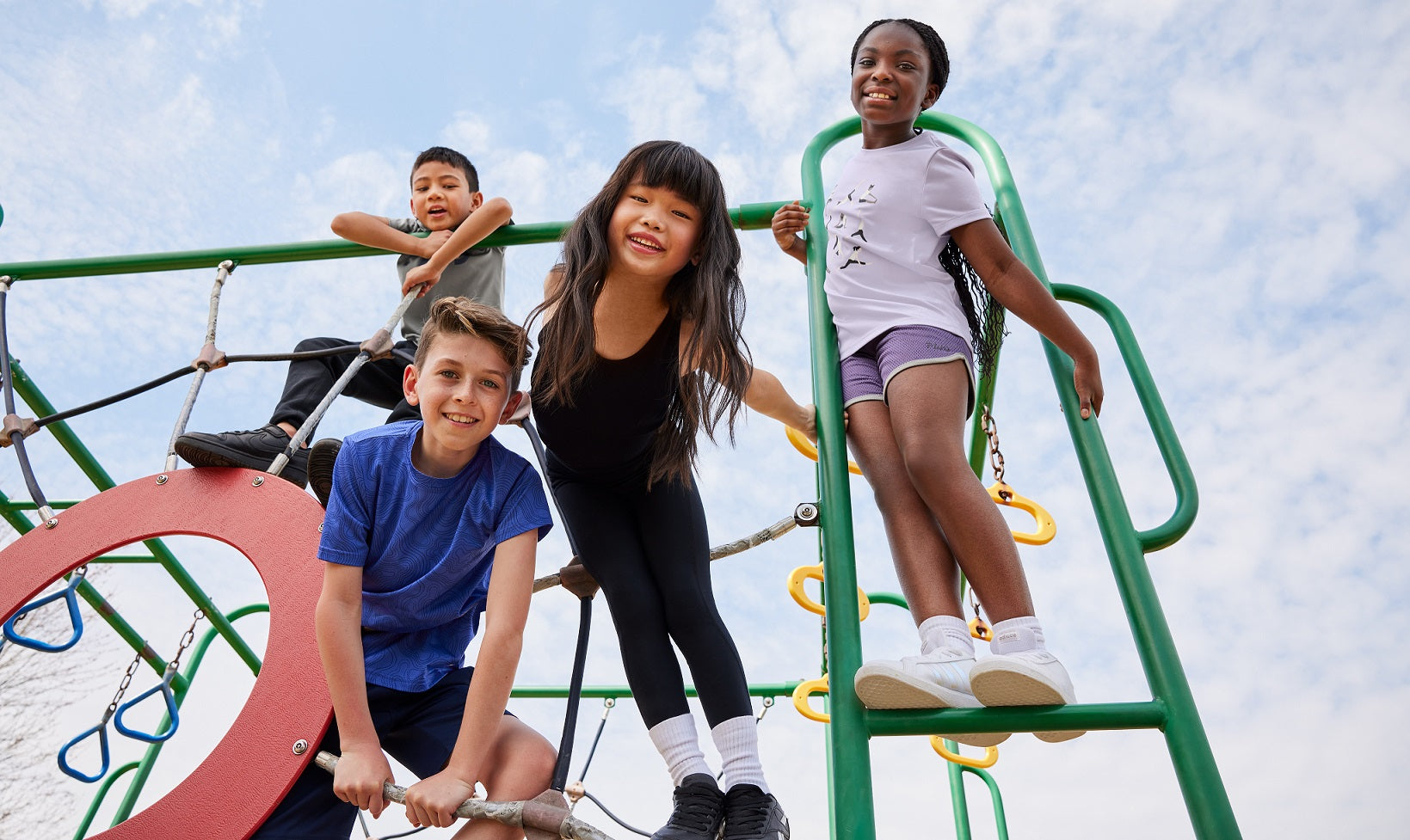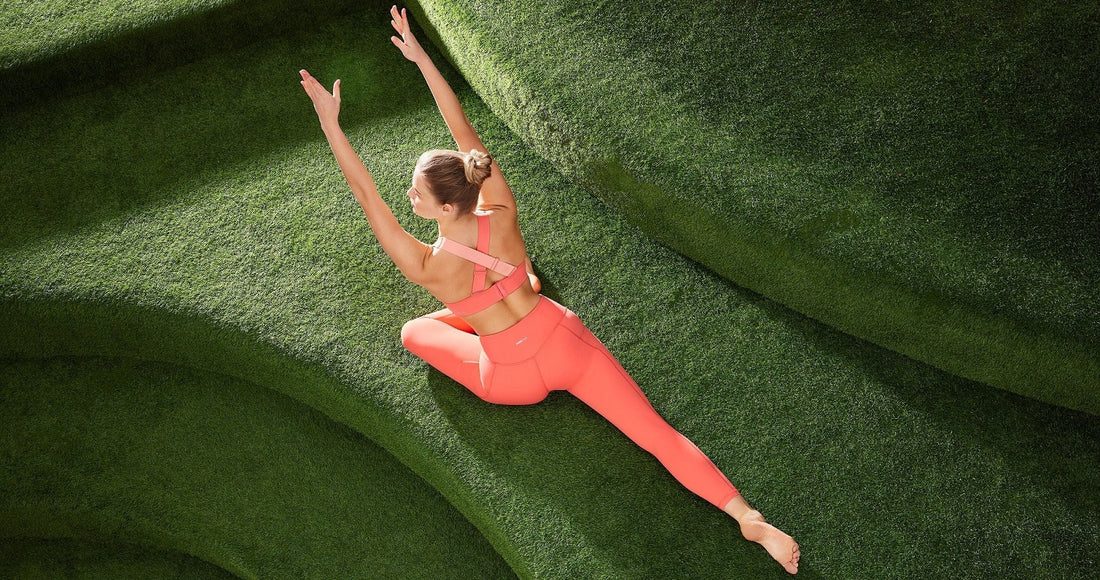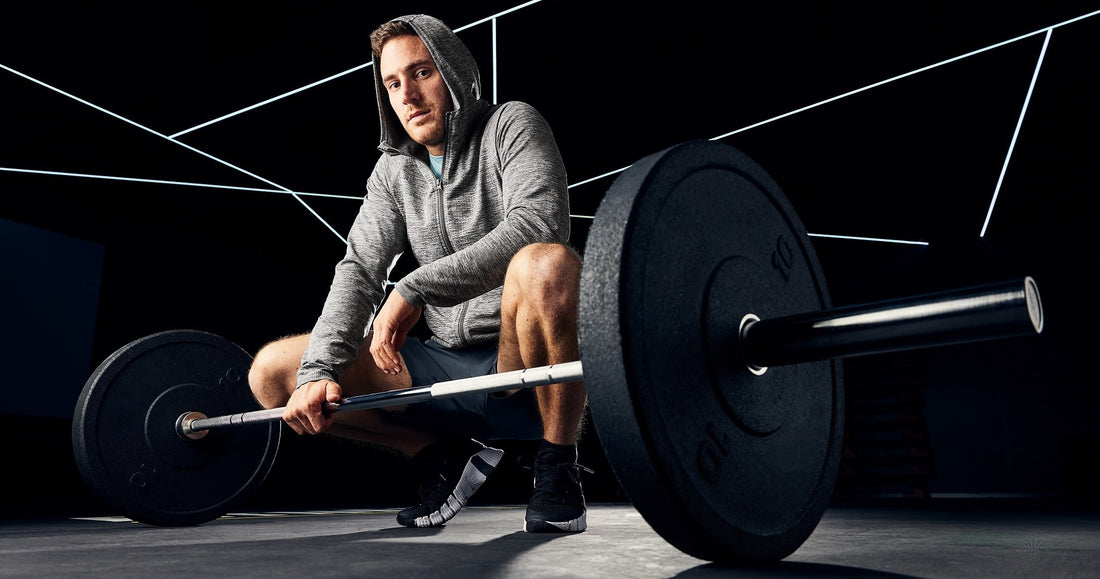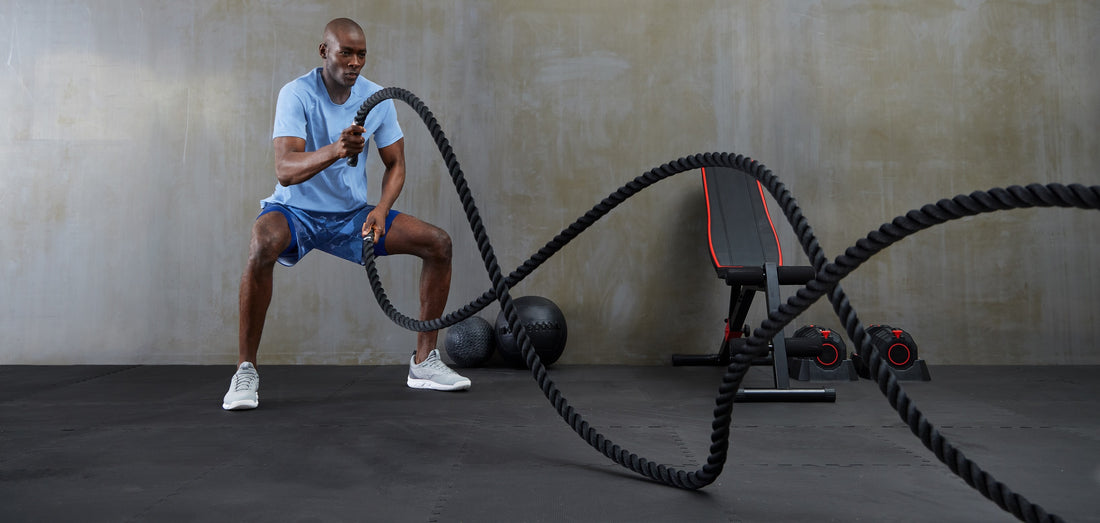Published on: Today's Parent
Exercise is important for both physical and mental wellbeing — and your kid is likely not getting enough
When Canadian kids’ music legends Sharon, Lois & Bram encouraged little ones to “shake their sillies out” in their now-classic tune, they knew what they were talking about. It isn’t news to most parents that children need to move their bodies — because when they don’t, everyone suffers.
“When kids’ body needs are not being met, it’s a lot harder for them to keep their cool, to be patient and kind, and to keep those big feelings at bay instead of letting them loose in unhelpful or harmful ways,” says Tara Gratto, a long-time parenting educator who operates an outdoor, play-based preschool in Toronto. That’s not to mention the obvious physical benefits of exercise — cardiovascular fitness, strength, flexibility and better sleep, among others.
With the summer wrapping up and kids starting a new routine, it’s the perfect time to reset their habits and work regular, playful movement into their daily lives — for the benefit of the whole family. Here’s how to make it happen and instill a life-long love of being active while you’re at it.

From left: FWD Girls' Seamless Bra $24.99 FWD Boys' Tech T Shirt $19.99 FWD Girls' Basic UPF T Shirt $24.99 and FWD Girls' Reversible Knit Shorts $29.99; FWD Boy's Core Branded UPF Tee $24.99 and FWD Boys' Stretch Jogger Pants $39.99
Build movement into your daily routine
We’ve all heard that the best way to get kids moving is to involve the whole family, but that can be a challenge. “The reality of busy family lifestyles is that it might feel impossible to block off time for something like family fitness,” says Gratto. She suggests examining your current routine and seeing if there might be a way to swap in more movement. For example, could your daily drive to school instead be a 20-minute walk? If you need to drive, could you park further away? If you take a city bus, could you get off a couple of stops early? Have a look at your evening schedule, too. Perhaps in place of an extra-curricular activity, you could schedule a daily family walk or bike ride to different destinations.
The added bonus of these routine switch-ups is of course the extra connection and family time, not to mention the health benefits the adults will also enjoy from the additional exercise.
Choose the right ‘fit
It might not seem important, but what kids wear has an effect on their ability to engage in movement and play. For example, Gratto says she’s seen kids unwilling to engage in physical activity because they were afraid it would “ruin their clothing” or get their clothes dirty. Similarly, a garment that is too small may limit or prevent kids from testing their full movement abilities or potential. “Children are often quite flexible, and when they wear clothing that supports this, they will explore more freely and safely.”

FWD Girls' Seamless Bra $24.99, and FWD Girls' 7/8 Leggings $38.99; FWD Girls' All Year Pullover Hoodie $44.99 and FWD Girls' 4 Inch Shorts $24.99
FWD makes stylish, fun clothes that are easy for kids to move in. Perfect for the school day or playground, FWD's lineup of athleisure wear features thoughtful details like cute prints, reversible pieces, moisture-wicking layers and reflective details.
Go beyond structured activities
While an after-school ballet or soccer class can be fun for your kid, it might not offer the sustained exercise they need. “There can be a lot of waiting, structured rules and guidelines to follow, and they rely on a lot of adult oversight,” says Gratto. “So although these are all physical activities, kids [sometimes] really aren’t moving very much, and not for significant periods of time.”
Prioritize activities that include sustained movement that isn’t bound by too many rules, recommends Gratto, such as a long walk or hike, a playground adventure, a scooter ride or a swim that isn’t connected to a lesson.

FWD Boys' UPF Long Sleeve Shirt $29.99 and FWD Boys' Active Woven Pants $44.99.
Be realistic about what happens at school
Thanks to recess and gym class, there are plenty of opportunities for kids to move their bodies throughout the school day, right? “This is a common misperception,” says Gratto. In many public schools, gym is not a daily activity, she explains. As for recess, it’s often only long enough for kids to choose an activity and get warmed up before the bell rings and it’s time for them to return to class — and that’s if the weather is good enough for the kids to go out in the first place. “I’ve had conversations with parents where they discovered their child had done very little movement at school for an entire week,” says Gratto.

FWD Girls' All Year Pullover Hoodie $44.99 and FWD Girls' 7/8 Leggings $38.99
Stop trying to convince kids it’s fun
We’ve all been told to try to make difficult or boring activities “fun” to keep their kids interested. It’s worth a try — like adding a scavenger hunt to a hike — but the truth about exercise and movement is that it isn’t always going to be fun. It is, however, important and worthwhile, and kids can absorb that if it’s explained in an age-appropriate way. “Children are more willing to do less-fun things when they understand the importance of them,” says Gratto. “Making the connection between movement and mental well-being is important.”
Use technology wisely
Using technology to encourage kids to get more physical activity can be effective. Remember when Pokemon Go got families walking for hours at a time? That said, Gratto recommends avoiding immersive game-based tech if possible, because it stimulates the brain instead of providing a mental break. She does see the benefit, however, of any technology that motivates kids to set and track goals.
No matter what gets your kids and your family moving this school year, be sure to keep talking to your kids about this stuff. “An essential part of building routines around movement is building an awareness with children about the role it plays in supporting their mental and physical well-being.”
Join Forward With Design family to stay on top of all the sustainable initiatives and product launches.





